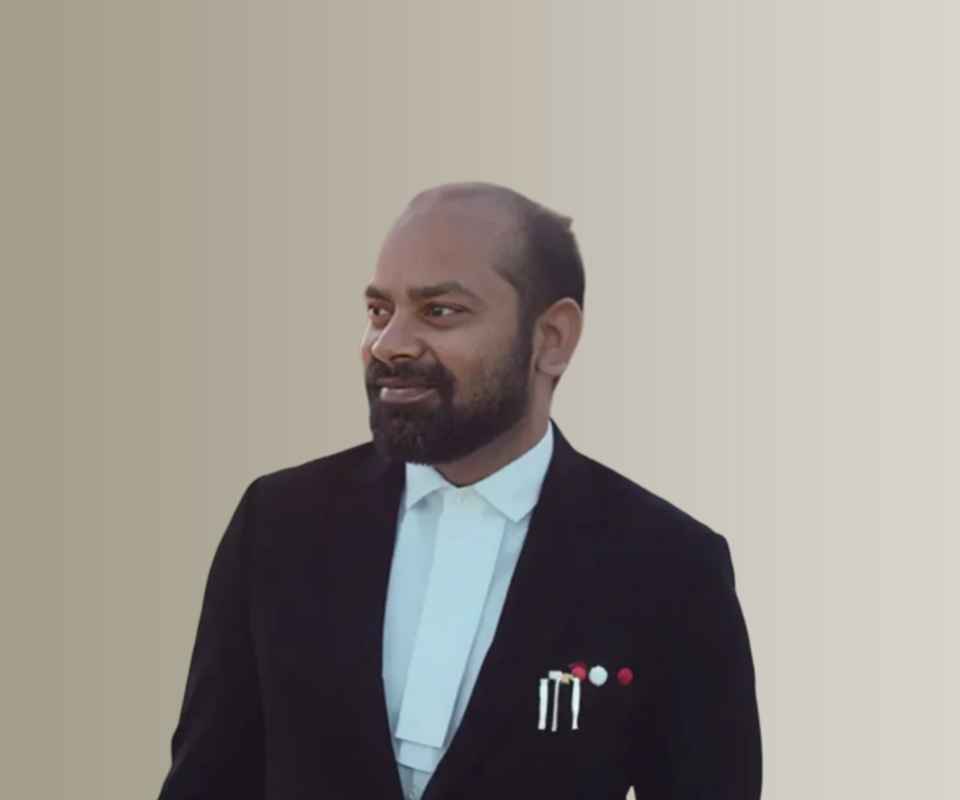In India, the procedure for seeking a pardon or commutation of a sentence is governed by the Constitution, particularly under Article 72, and various statutory provisions. Here’s an overview of the procedure:
Constitutional Provisions:
Article 72 of the Indian Constitution grants the President the power to grant pardons, reprieves, respites, or remissions of punishment under certain circumstances. This power is applicable to:
Cases involving the death penalty.
Cases where a person has been convicted of an offense against a law relating to a matter in the Union List.
State Provisions:
Article 161 provides similar powers to the Governors of states for granting pardons and commutations in cases related to offenses against state laws.
Types of Clemency:
Pardon: Completely absolves the individual of their crime and its consequences.
Commutation: Reduces the severity of the punishment without overturning the conviction.
Reprieve: Delays the execution of a sentence.
Respite: Alters the sentence based on special circumstances, such as illness.
Application Procedure:
An application for pardon or commutation can be made by the convict, their legal representatives, or a person on their behalf.
The application should be in writing and addressed to the President of India or the Governor of the respective state.
It must include relevant details, such as:
The convict's name and details of the conviction.
The nature of the offense.
The sentence imposed.
Reasons for seeking pardon or commutation.
Submission of Application:
The application can be submitted directly to the President or Governor through a letter or via the convict's legal counsel.
In some cases, it may also be submitted through the concerned prison authorities.
Review Process:
The President or Governor may seek recommendations from the Ministry of Home Affairs or the concerned state government.
The application may be forwarded to a relevant committee or advisory board for evaluation, which can include legal experts and officials.
Decision:
The President or Governor will review the application along with the recommendations and make a decision.
The decision is discretionary and is not subject to judicial review. However, it must be exercised in accordance with the law and principles of justice.
Notification:
If the pardon or commutation is granted, a notification is issued, and the concerned authorities are informed to implement the decision.
If the application is rejected, the applicant is usually informed, although there is no obligation to provide reasons for the rejection.
Limitations:
The power to grant pardons or commute sentences does not apply to cases involving military law, where the authority lies with the military tribunal.
In summary, the procedure for seeking a pardon or commutation of a sentence in India involves submitting a written application to the President or Governor, which is then reviewed by relevant authorities before a decision is made. The process is discretionary, and the authority has the ultimate power to grant or deny such requests.
Dear client,
Introduction
Wide as the power of pardon, commutation and release (Articles 72 and 161) is, it cannot run riot, for no legal power can run unruly like John Gilpin on the horse but must keep sensibly to a steady course.
These words of Justice Krishna Iyer astutely summarize the scope and extent of the pardoning power as it exists in India. This essay, divided into three parts, discusses both the concept of pardoning power as it has evolved in India, along with the relevant and important issue of judicial review thereof. While the first part discusses the subject of pardoning power in general, the second part analyzes the same in the light of relevant Constitutional provisions. The third crucial section analyzes the President’s pardoning power from the perspective of its judicial treatment.
Pardoning Power – An Overview
Article 72 of the Constitution of India bestows upon the President of the Indian Union a unique function called the “pardoning power”. A pardon is an act of grace and cannot be deemed as a matter of right. The reason for granting the executive with such a wide and distinct power is:
To afford relief from undue harshness or evident mistakes in the operation or enforcement of the criminal law… it is a check entrusted to the executive for special cases.
Thus, it can be seen that the object of such a power, which is ordinarily called the exercise of “mercy jurisdiction” of the President is to correct possible judicial errors, for no human system of judicial administration can be free from imperfections. The power of pardon exists in various other countries of the world too. For instance, a similar power is granted to the American Sovereign who is the President of the United States of America and the British Crown where it is considered to be the royal prerogative.
The term “pardoning power” is in actuality the genus and comprises a variety of species of acts, such as pardon, reprieve, respite, remission, suspension, commutation. A pardon completely absolves the guilt of the offender. Hence, it can be seen that the legal effect of a pardon is to absolve the person stigma of guilt of committing the offence. The legal effect of a pardon was propounded accurately by Field, J., in Ex Parte Garland when he said:
… When pardon is full, it releases the punishment and blots the existence of the guilt, so in the eye of the law the offender is as innocent as if he had never committed the crime...it restores him, as it were, a new man and gives him a new credit and capacity.
To Pardon or not to Pardon: The President’s Prerogative?
The pardoning power as enshrined in Article 72 of the Constitution, confers on the President of India, a right to exercise the same with respect to a punishment or sentence by a Court Martial, or in relation to an offence against a law that relates to the executive power of the Union, or in case of a death sentence.
The pardoning power granted to the President is very wide and extends to the whole of India. The scope of the President’s power depends upon the facts and circumstances of each individual case. Pardoning power of the President can be exercised either to save a person from the consequences of an offence or from a punishment in relation to such an offence. Thus, according to jurists like Balakrishna, pardon must be in respect of an offence and not for any simple breach of a condition on which any franchise has been granted.
One of the major issues of contention in the exercise of the pardoning power is that whether this power can be exercised by the President on his own personal discretion or whether he is bound by the advice of the Council of Ministers. The Supreme Court, in the landmark case of Maru Ram v. Union of India has categorically held that the President cannot exercise his personal discretion in this matter; rather, he functions on the aid and advice of Council of Ministers. Justice Krishna Iyer in his leading judgment, was extremely clear of the legal position on the subject, and said that Governor was but a shorthand expression for the State Government while the President was an abbreviation for the Central Government.
It has, however, been seen that the exercising of the pardoning power by the President on the advice of the Council of Ministers has its own problems. According to jurists like Thakur, in Kehar Singh’s case, the plea of the guilty persons could have never succeeded since he had committed the assassination of Prime Minister and Congress leader Smt. Indira Gandhi and the Congress was then in power at the Centre. Moreover, in a coalition government too, this problem does not get mitigated, as due to various party interests, the council is unable to give a free and impartial opinion to the President. This also raises concerns and according to many scholars, justifies a need for judicial review of the President’s Pardoning Power.
To Review or not to Review: The Judiciary’s Stand
One of the most interesting aspects of the analysis of the pardoning power of the President is the stimulating judicial approach adopted towards it. This section focuses on seminal case-laws and analyzes the nature and extent to which the pardoning power of the President is subject to judicial scrutiny. It is divided into three sections, i.e., Pre-Maru Ram, Maru Ram and post-Maru Ram phases.
Pre-Maru Ram Phase
One of the earliest landmark cases where the Court analyzed the subject of pardoning power of an executive is the case of K.M.Nanavati v. State of Bombay. Here, the Court was concerned with the exercise of pardoning power by the Governor of Maharashtra and due to conceptual similarity and relevance with the issue at hand, the same is discussed below.
Commander Nanavati of the Indian Navy was found guilty of murder by the Bombay High Court and punished for imprisonment for life. However, his sentence was suspended by the Governor of Bombay pending his appeal in the Supreme Court. It is pertinent to point that at that time the Court had made a rule under Article 145 of the Constitution wherein a petitioner undergoing a term of life imprisonment had to first surrender his sentence before the petition is heard unless the Court orders otherwise. Nanavati submitted to the Supreme Court that due to Governor’s order, he was exempted from the same.
The Supreme Court by a majority of 4 to 1 held that the Governor’s order was constitutionally invalid and would operate only till the matter was sub judice before the Court on filing the petition for special leave, but not after that. It was contended in the Court by Seervai that though the Court had the power to suspend sentence or grant bail pending hearing of the special leave petition, it would not affect the power of the executive to grant a pardon, using the term in its comprehensive sense.
Thus, this led the Court to analyze the nature and scope of the pardoning power itself. According to the Court, the power of the Court overlaps with the power of the Executive to suspend the sentence during pendency of the special leave. Thus, the Court adopted the rule of harmonious construction between the two organs of the government. Seervai, who later criticized the majority judgment, said “the principle of harmonious construction was clearly misapplied, because the majority judgment created disharmony between two constitutional provisions where none existed.”
Thus, it is seen that in the Nanavati’s case the Court by exercising review, added a totally new limitation to the pardoning power. It is, however, pertinent to point that in another case of Sarat Chandra Rabha v Khagendra Nath, the same bench unanimously accepted the dissenting opinion of Kapur, J. in Nanavati’s case. The Court in Rabha’s case has clearly made a distinction between judicial and executive power, which according to them operates on different planes, and one does not affect the other.
Another case in which the Supreme Court chose to give its views on the subject of the Pardoning Power is the case of G. Krishta Goud v. State of Andhra Pradesh. This case arose from the refusal of the President of India to grant mercy to the petitioners who were murderers and as a result the petitioners had approached the Supreme Court to review the President’s refusal of clemency.
The Court in this case opined that the pardoning power granted to the President as well as the Governor was historically a sovereign power, politically a residuary power and humanistically an aid of intangible justice. The Court was reluctant to exercise judicial review on the decision of the President. In the judgment, Krishna Iyer, J., stated thus:
No power in a republic is irresponsible or irresponsive, the people in the last resort being the repositories and beneficiaries of the public power. But two limitations exist in our constitutional system. The Court cannot intervene everywhere as omniscient, omnipotent or omnipresent being. And when the Constitution, as here, has empowered the nation’s highest Executive, excluding by implication, judicial review, it is officious encroachment… for this Court to be a superpower unlimited.
Thus, the Court in this case showed extreme hesitation on its part to even look into the decision of the Court. However, it is pertinent to point that the quoted paragraph from the case starts with presumption that public power is not irresponsible. In fact, eventually, Krishna Iyer, J., giving a word of caution stated that “absolute, arbitrary law-unto-oneself mala fide execution of public power, if gruesomely established, the Supreme Court may not be silent and impotent.”
Thus, though the Court started with great reluctance, it had ultimately put restrictions on the pardoning power of the President and the Governor through its interpretation and activist approach.
Maru Ram Phase
Another seminal case on this subject is the case of Maru Ram v. Union of India. It was filed to challenge the constitutionality of Section 433A of the Code of Criminal Procedure, 1973 as it made actual detention for a period of fourteen years mandatory for two classes of offenders. It was in this regard that the petitioners contended that Section 433A was ineffective since it detracts from the operation of Section 433(a) which is “legislative surrogates” of the pardoning power under the Constitution. The Court in its leading judgment by Krishna Iyer J. said that although both the constitutional and the statutory power present with respect to pardon are similar, they are not same inspite of being coextensive.
He expressed the view that all public power, including the constitutional power should not be exercised arbitrarily or mala fide and ordinarily, guidelines for fair and equal execution are guarantors of the valid play of power. It was for the first time in this case that the Court suggested laying down of guidelines for the purpose of exercising the pardoning power by the President as it will “exclude the vice of discrimination such as may arise where two persons have been convicted and sentences in the same case for the same degree of guilt but one is released and the other refused, for such irrelevant reasons such as religion, caste, colour or political loyalty.”
Maru Ram’s case appears to be a step forward from the Krishta Goud’s case where the Court was extremely reluctant and only towards the end accepted that in certain cases the Court would not be prevented from exercising judicial review. However, in the present case, it is seen that, Krishna Iyer, J. is no longer hesitant in exercising the judicial review and says in strong words to the government to lay down guidelines to check the exercise of pardoning power.
Post-Maru Ram Phase
Likewise, another important decision is Kehar Singh v. Union of India. Singh was convicted of an offence under Section 120B read with Section 302 of the Indian Penal Code for assassination of Smt. Indira Gandhi, the then Prime Minister of India and sentenced to death for the same. Subsequently, he made a petition before the President seeking exercise of powers under Article 72. The President rejected the plea stating that, “The President is of the opinion that he cannot go into the merits of a case finally decided by the Highest Court of the Land.”
The Supreme Court while reviewing the petitioner’s claim concluded:
We are of the view that it is open to the President in the exercise of the power vested in him by Article 72 of the Constitution to scrutinize the evidence on the record of the criminal case and come to a different conclusion from the recorded by the Court in regard to the guilt of, and sentence imposed on, the accused. …The President acts in a wholly different plane from that in which the Court acted.
Thus, it can be seen that in Kehar Singh, the Court has adopted the stand taken in Rabha’s case where the power of the executive and the judiciary was distinguished, thus rejecting the position of Nanavati’s case implicitly.
The Court also held that it could never look into the merits of the exercise of the pardoning power and would confine itself to the limitations laid down in the case of Maru Ram. Another important stand taken by the Court was in relation to framing of guidelines, which had earlier been suggested by the Court in the Maru Ram’s case. The Court ruled out the need for forming guidelines and stated there is sufficient indication in the terms of Article 72 and in the history of the power enshrined in that provision as well as existing case-law, and specific guidelines need not be spelled out.
Thus, it can be seen that Kehar Singh’s case reaffirmed Maru Ram’s judgment on the subject of judicial review of the President’s pardoning power. However, it is imperative to mention, that in the recent times, there has been a growing apprehension amongst the scholars that the Court in its zeal to scrutinize the pardoning power may get misguided and encroach upon the President’s powers itself. This would inadvertently result in looking into the substantial merits of the case. The author feels that such an apprehension is not justified as the Indian judiciary has followed a well-balanced method of scrutiny till date. Even in the recent case of Epuru Sudhakar. v. Govt. of A.P. the Supreme Court has adhered to the conditions laid in the Maru Ram’s case.
Conclusion
The judicial review of the pardoning power is a classic illustration of evolution of law through judicial interpretation. Starting with extreme hesitation to even look into the subject, the trend has now shifted towards a more balanced and middle path approach. The courts have largely agreed upon the judgment given in Maru Ram’s case and the limitations imposed therein to carve their role in cases of review. There is a consensus that the court cannot look into the merits of the decision except in cases of arbitrariness, mala fide or ignorance of certain relevant facts. Although the courts have in a few cases, crossed the thin line which restricts the scope of their review as laid down in Maru Ram’s case, it is felt that such cases are aberrations. These should be ignored since there has been very little or no deviation by the Court from the path shown in the Maru Ram judgment.
Thus, concluding in the words of Pathak, C.J., “in any civilized society, there can be no attributes more important than the life and personal liberty of its members”33 and the pardoning power of the President and the Governor is one such power which ensures the same. This power is thus an imperative and integral part of the Constitution and it is hoped that the repositories of the power exercise the same in a just and impartial manner and the judiciary continues to act as a watchdog in such cases.
Should you have any queries, please feel free to contact us!








